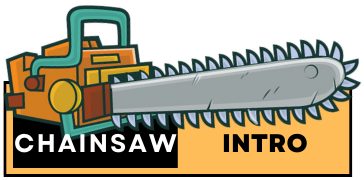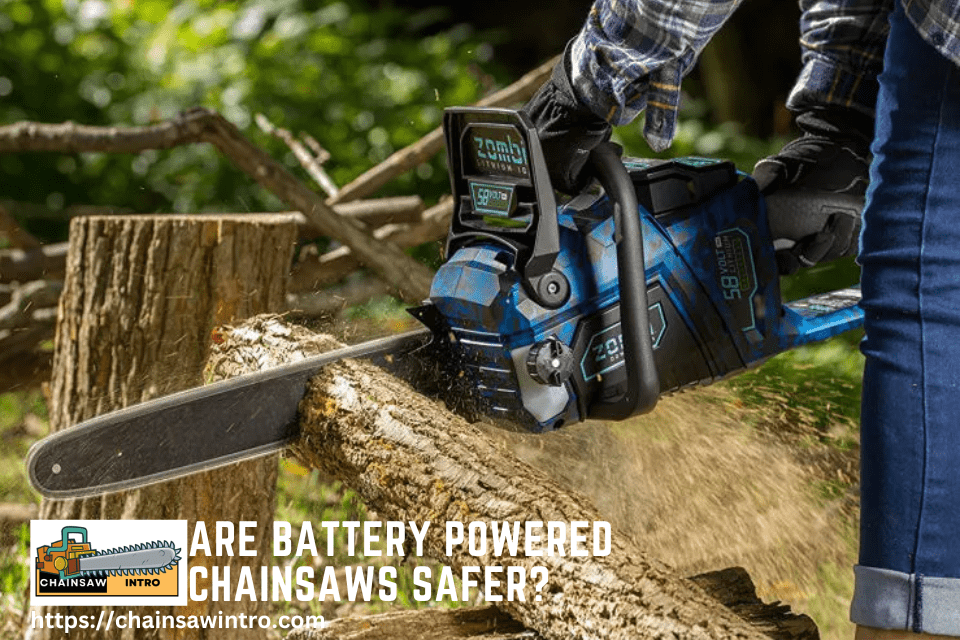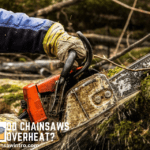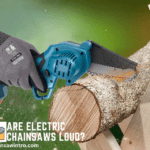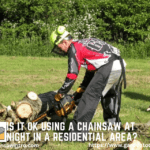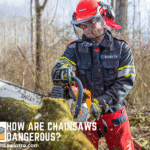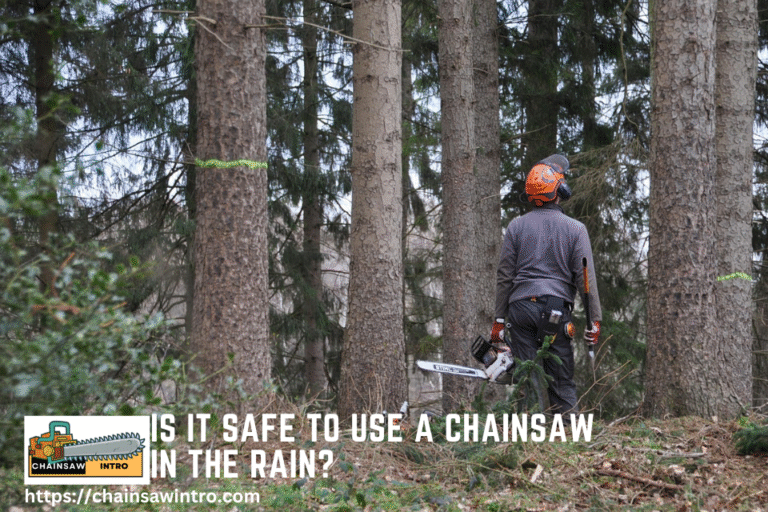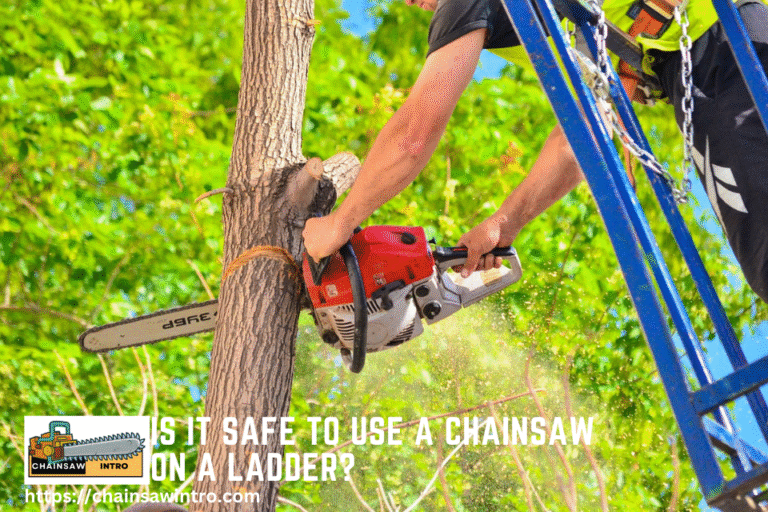Chainsaws are one of the most powerful tools in outdoor maintenance, but they also rank among the most dangerous if not used properly. With the rise of modern technology, battery powered chainsaws have become increasingly popular, especially among homeowners and DIY enthusiasts. Many people wonder: Are battery powered chainsaws actually safer than traditional gas models?
The short answer is yes—battery powered chainsaws tend to be safer for casual users thanks to their lighter weight, reduced kickback risk, and easier handling. However, “safer” doesn’t mean “risk-free.” This article breaks down the facts about safety, performance, and what makes battery chainsaws a smart choice for certain users.
Why Safety Matters with Chainsaws?
Before comparing, it’s important to understand why chainsaws are considered high-risk tools. Chainsaw accidents can involve kickback (the sudden upward motion of the bar), cuts from the chain, falling branches, or operator fatigue. According to safety reports, thousands of people visit emergency rooms every year due to chainsaw-related injuries.
This is where battery-powered chainsaws come in—they’re designed with convenience and safer handling in mind, making them appealing for homeowners who may not have professional logging experience.
How To Use and Maintain a Battery Powered Chainsaw
Safety Advantages of Battery Powered Chainsaws
So, what makes a battery-powered chainsaw safer compared to a gas model?
Lighter Weight and Better Control
Battery chainsaws are usually smaller and lighter than gas chainsaws. This reduces operator fatigue, making it easier to control the saw and less likely that you’ll lose grip during use.
Lower Kickback Risk
While kickback can still occur, many battery saws are designed with low-kickback chains and shorter guide bars, reducing the chances of dangerous recoil.
Instant Start and Stop
Unlike gas saws that require pull-starting and idle even when not cutting, battery chainsaws start instantly with the push of a button. When you release the trigger, the chain stops moving immediately—reducing the risk of accidental injuries.
Quieter Operation
Battery saws operate much more quietly than gas models. While noise isn’t a direct safety issue, it improves awareness of surroundings, especially if you’re cutting near other people or property.
Reduced Maintenance & Risks
Gas saws require fueling, carburetor adjustments, and oil mixing, which can be messy and hazardous. Battery chainsaws eliminate fuel handling, reducing the risks associated with gasoline fumes and spills.
Who Benefits Most from Battery Powered Chainsaws?
Battery-powered chainsaws are best suited for:
- Homeowners who need to cut firewood, trim trees, or clear storm debris occasionally.
- Beginners who want a safer and easier tool to handle than gas chainsaws.
- Urban or suburban users where noise reduction and clean operation are big advantages.
On the other hand, professional loggers or those regularly felling large hardwood trees may still prefer the raw power of gas chainsaws.
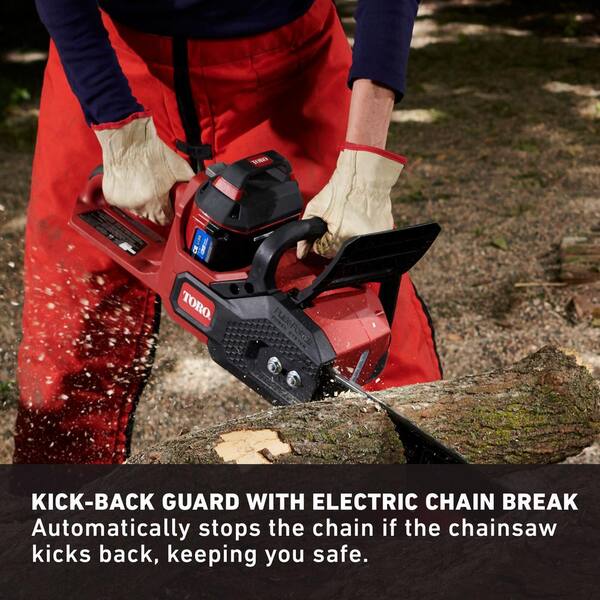
What is an Advantage of a Battery Operated Chainsaw?
With all of the cutting, trimming and pruning needed in today’s landscaping industry, chainsaws are an essential tool for any professional. But safety is always a top priority, so having the right type of saw is important. One popular option is the battery powered chainsaw. This type of chainsaw offers many advantages over traditional gasoline-powered models, and can help keep you safe while getting the job done.
Lighter: they are often lighter in weight than the gasoline powered version. This is because you don’t have to worry about carrying fuel, which tends to be heavier than batteries. Because the chainsaw is lighter, it can reduce arm and shoulder fatigue. Since you don’t have to add fuel, you’ll save time getting the chainsaw ready to work. Simply charge the battery, install it into your saw, and you’re ready to go.
Quieter Operation: Another safety benefit of battery powered chainsaws is that they are much quieter than their gasoline counterparts. This reduces the risk of hearing damage from loud engine noise and also makes it easier to concentrate on the task at hand.
Less Maintenance: Battery powered chainsaws require less maintenance than gas-powered models. This means less time spent servicing and repairing your saw, and more time actually doing the job.
Easier to Use: Battery powered chainsaws are also easier to use than gasoline-powered models. This makes them ideal for novice users who may not have the experience or skills needed to operate a traditional saw.
Overall, battery powered chainsaws offer many advantages over traditional gasoline-powered models. They are safer to use, quieter, require less maintenance, and are easier to operate. This makes them a great option for any professional landscaper looking to keep themselves safe while getting the job done!
Battery Chainsaws vs. Gas Chainsaws: Safety Comparison
| Feature | Battery Chainsaw | Gas Chainsaw |
|---|---|---|
| Weight | Lighter, easier to handle | Heavier, more tiring |
| Kickback Risk | Lower (shorter bars, safety chains) | Higher, especially with longer bars |
| Start/Stop | Push-button, instant stop | Pull-start, chain may move during idle |
| Noise Level | Quieter | Much louder |
| Maintenance Risks | Minimal (no fuel mixing) | Fuel handling, fumes, and carb adjustments |
From this comparison, it’s clear why battery models are safer for casual and new users.
Top Battery-Powered Chainsaws for Safety
Based on 2025 reviews from Pro Tool Reviews, Consumer Reports, and TechGearLab:
- DeWalt DCCS677Z1 60V ($600-$700): Fast cuts, robust chain brake, 15.5 pound.
- Ego Power+ CS1613 56V ($300-$400): Lightweight (10 pounds), 150 cuts per charge.
- Stihl MSA 300 C-O ($600-$800): Professional-grade, low-kickback chain.
- Worx WG385 40V ($150-$200): Budget-friendly, strong chain brake.
Safety Testing and Standards
In 2025, Consumer Reports tested 40 electric chainsaws, including battery models, on 10-inch oak beams, noting that top performers like the DeWalt DCCS677Z1 match gas saws in speed but offer safer handling due to lighter weight (15.5 pounds vs. 20 pounds for gas). The U.S. Forest Service’s 2023 evaluation found battery saws require the same PPE and training as gas models, emphasizing that “smaller does not mean safer,” per. ANSI B175.1 compliance ensures all modern chainsaws, including Stihl, Ego, and Milwaukee, meet safety standards.
Final Verdict: Are Battery Powered Chainsaws Safer?
Yes—battery powered chainsaws are generally safer than gas chainsaws, especially for homeowners and beginners. Their lighter weight, reduced kickback risk, instant start/stop, and quieter operation make them easier and safer to use.
That said, they are still serious power tools and must be handled with proper safety gear and techniques. For small to medium yard tasks, a battery chainsaw is a smart, safe, and convenient choice. For professional logging or frequent large tree felling, a gas-powered chainsaw remains the better option.
In the end, a battery chainsaw isn’t just about safety—it’s about matching the right tool to your needs. If your projects involve light to moderate cutting, then yes, a battery-powered chainsaw is both a safe and worthwhile investment.
Frequently Asked Questions
Are battery powered chainsaws safer than gas chainsaws?
Yes. Battery chainsaws are generally lighter, easier to control, and have lower kickback risk, making them safer for homeowners and beginners.
Can a battery chainsaw cut large trees?
Battery chainsaws are best for small to medium-sized trees and branches. Heavy-duty cutting of large hardwoods is better suited for gas chainsaws.
Do battery chainsaws require maintenance?
Yes, but it’s minimal compared to gas chainsaws. You mainly need to sharpen the chain, check the bar, and charge the battery, avoiding the hazards of fuel handling.
Are battery chainsaws good for beginners?
Absolutely. Their lighter weight, lower noise, and push-button start/stop make them ideal for novice users who want a safer tool.
Can battery chainsaws reduce fatigue?
Yes. Because they are lighter and better balanced, they are easier to handle for extended periods, reducing user fatigue and improving control.
Do battery chainsaws completely eliminate risk?
No. They are safer than gas models, but proper safety gear and caution are always necessary to prevent injury.
Are Battery-Powered Chainsaws Better Than Gas?
When it comes to chainsaws, there are two main types: gas and battery-powered. So, which is better? Well, it depends on what you need the chainsaw for.
If you need a powerful saw that can handle tough jobs, then a gas chainsaw is probably your best bet. However, if you don’t need as much power and just want something that’s easy to use and maintain, then a battery-powered chainsaw might be a better option.
Do battery chainsaws kickback?
Yes, battery powered chainsaws can kickback just like any other type of chainsaw. Kickback is a dangerous reaction that occurs when the saw’s cutting chain is pinched or jammed and suddenly stops moving. This can cause the saw to jerk back violently, potentially causing serious injury. It is important to always use proper safety techniques when operating any type of chainsaw, including battery powered models.
Are Battery Chainsaws Any Good?
yes! Battery chainsaws are becoming more popular because they’re convenient, powerful and safe. They can be used in places where it’s not possible to use a gas-powered saw, such as inside buildings or around children. Battery powered saws also don’t release fumes like gas-powered saws do, so they’re better for the environment.
How Long Does a Battery Operated Chainsaw Last?
The battery life of a battery operated chainsaw will depend on the type of battery used, the capacity of the battery, and how often the chainsaw is used. Generally speaking, most battery powered chainsaws will last for up to 40 minutes of continuous use before needing to be recharged. However, this can vary depending on the size and type of battery used.
Is There a Safe Chainsaw?
Yes, there are several safety features available on battery powered chainsaws that can help to reduce the risk of injury or damage. These include: chain brakes, chain tensioners, kickback guards, low-kickback chains, and chain covers. In addition, it is important to always wear protective gear such as gloves, eye protection, and long pants when operating a chainsaw. Finally, always read the instructions provided with your chainsaw before use and make sure to follow all safety guidelines.
I’ve spent the past 10+ years working with chainsaws in forestry, landscaping, and firewood preparation. Along the way, I’ve gained certifications in chainsaw operation and safety and built extensive experience with trusted brands like Stihl, Husqvarna, and Oregon. I enjoy sharing my knowledge through step-by-step guides, tool reviews, and safety advice so others can get the most from their chainsaws while staying safe on every job.
